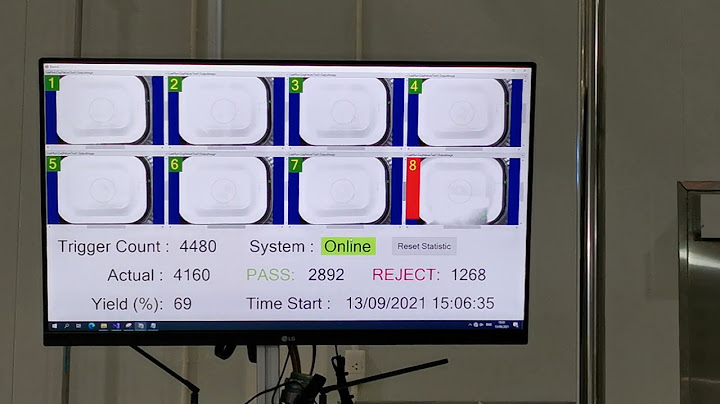Show บทคัดย่อการศึกษาเรื่องนี้ มีวัตถุประสงค์เพื่อศึกษาแนวคิดและบทบาทเกี่ยวกับการปฏิรูประบบสุขภาพขององค์กรพัฒนาเอกชน โดยศึกษาเครือข่ายขององค์กรพัฒนาเอกชนที่ดำเนินกิจกรรมด้านการพัฒนาชุมชน พัฒนากลุ่มเป้าหมายเฉพาะหรือพัฒนาสังคมโดยส่วนรวม โดยการจัดกลุ่มเสวนา (Focus Group Discussion) ศึกษากรณีตัวอย่างองค์กรพัฒนาเอกชน 6 กรณี โดยวิธีการศึกษาเฉพาะกรณี (Case Study) และศึกษานักคิดที่มีบทบาทในองค์กรพัฒนาเอกชนที่เกี่ยวข้องกับระบบสุขภาพ จำนวน 14 คน โดยการสัมภาษณ์ระดับลึก (In depth Interview) ผลการศึกษาพบว่า ในทัศนะขององค์กรพัฒนาเอกชน ปัญหาสาธารณสุขเกิดจากนโยบายการพัฒนาประเทศที่เน้นเฉพาะการเจริญเติบโตทางเศรษฐกิจ ระบบบริการสุขภาพและสาธารณสุข เป็นระบบที่รับมาจากตะวันตกที่เน้นกำไรเป็นหลัก การผลิตและพัฒนากำลังคนดำเนินตามระบบการศึกษาแบบตะวันตก ซึ่งเน้นประโยชน์ส่วนตน ติดยึดกับกรอบการบริหารราชการ กฎหมายเกี่ยวกับสุขภาพถูกครอบงำด้วยการแพทย์แผนตะวันตก นโยบายด้านสาธารณสุขของรัฐ ได้รับอิทธิพลจากธุรกิจเอกชน รัฐบริหารงานสุขภาพแบบรวมศูนย์ เน้นการรักษามากกว่าการป้องกัน มีวิธีคิดและทำงานแบบแยกส่วน อาศัยแบบแผนเพียงแบบแผนเดียว ในการแก้ปัญหาสุขภาพทั่วประเทศ องค์กรพัฒนาเอกชน ได้ดำเนินการแก้ไขป้องกันปัญหาสุขภาพและสาธารณสุขในลักษณะต่างๆ ซึ่งถือว่าเป็นบทบาทในการปฏิรูประบบสาธารณสุข คือ การเตรียมความพร้อมให้แก่ภาคประชาชน การส่งเสริมองค์กรชุมชน การค้นคว้าพัฒนาและฟื้นฟูความรู้และเทคโนโลยีที่เกี่ยวกับสุขภาพ โดยเฉพาะในส่วนของสมุนไพร และการนวดไทย หรือการแพทย์พหุลักษณ์ การคุ้มครองผู้บริโภค และการเชื่อมร้อยพลังทางสังคม เพื่อแก้ปัญหาต่างๆ ที่เกี่ยวกับสุขภาพ องค์กรพัฒนาเอกชน มีความเห็นว่า การปฏิรูประบบสุขภาพของรัฐบาล ให้ความสำคัญกับการปฏิรูปเชิงสถาบัน/องค์กร ส่วนองค์กรพัฒนาเอกชน มองว่าการพัฒนาคนและการสร้างศักยภาพในการพึ่งตนเองในด้านสุขภาพของประชาชน รวมไปถึงการพิทักษ์สิทธิผู้บริโภค เป็นหัวใจสำคัญในการดำเนินงาน ซึ่งถือว่าเป็นความคิดทางเลือกต่อความคิดกระแสหลัก แม้จะถูกคาดหวังให้เป็นภาคีหนึ่งในการปฏิรูประบบสุขภาพ แต่องค์กรพัฒนาเอกชนไม่สู้จะให้ความสำคัญต่อการปฏิรูประบบสุขภาพในความหมายของรัฐมากนัก ข้อเสนอขององค์กรพัฒนาเอกชนต่อการปฏิรูประบบสุขภาพ คือ เป้าหมายของการปฏิรูปสุขภาพ ควรอยู่ที่การทำให้ประชาชนทุกกลุ่มมีสุขภาพดีและสามารถพึ่งตนเองได้ เข้าถึงบริการสุขภาพของรัฐอย่างเท่าเทียม และรัฐควรมีบทบาทในการส่งเสริมการมีส่วนร่วม กระจายอำนาจ ปรับเปลี่ยนวิธีคิด ส่งเสริมการแพทย์พหุลักษณ์ การพึ่งตนเองและปรับเปลี่ยนนโยบายและกฎหมายบทคัดย่อThis research aims to study the concept and the role of NGOs in health reform. It explores NGO network which has been involved in community development, target group development or public social development. The main methodology includes focus group discussion, complied six case studies of NGOs as well as conducting in depth interview with 14 activists who have played significant roles in the health system. The research discovered that, from the NGOs’ perspective, the general health system problems arise from the national development policy that principally aim for economic growth. Health services and public health are adopted systems that are too westernized and only seek profit maximization. In the same vein, economic production and labor development are based on the principle of western education, which is rooted in self-interest attitude. Consequently, any laws related to health issues are controlled by the principle of western medicine, clinging to government administration and being influenced by private sector. Furthermore, the government is viewed as operating its public health system under centralized control, with an emphasis on curing rather than preventing. Its principle is strongly rested on non-integration and a single plan in order to solve health problem all over Thailand. NGOs have been taking part in resolving health and public health issues through various approaches. This is seen as an important role in reforming health system in particular by supporting community organization, research development and knowledge rehabilitation as well as health technology development. At the same time, herbal medicine, Thai traditional message, alternative medicine, consumer protection as well as social empowerment to answer any health-related issues. It is agreed by the NGOs that the governmental health reform only recognizes the important of institution and organizational reform. In term of health issue, a personnel development and capacity building to raise self-reliant, including the protection of consumer rights must be in the heart of government’s working operation. This is believed to be an alternative thinking against the mainstream principle. While the NGOs are viewed as one of the main stakeholders in promoting public health reform, but they do not see the importance of governmental public health reform’s approach. Suggestion emerges from the NGOs regards to the public health reform is to provide equitable access to government health service so that every group of people in the society achieve healthy livelihood and become self-reliant. Equally important, the government should support people participation, decentralization, flexible attitude, support alternative medicine, self-reliant as well as policy and legislation adjustment.องค์การพัฒนาเอกชนในประเทศไทยมีบทบาทสำคัญอย่างไรโดยองค์กรเอกชนนั้นมีบทบาทที่สำคัญสรุปได้ดังนี้ 1. เป็นตัวกลางเชื่อมโยงระหว่างภาครัฐและชุมชน 2. เสริมสร้างกระบวนการเรียนรู้และเผยแพร่ข้อมูล ข่าวสารต่าง ๆ ให้กับประชาชน
NGO มีความสําคัญอย่างไรบทบาท NGOsก็คือ บทบาทของกลุ่มคนเล็กๆ ที่ร่วมมือกันช่วยเหลือสังคม ช่วยเหลือรัฐ หรือช่วยเติมเต็มในการลดปัญหาทางสังคมที่เกิดขึ้นที่รัฐนึกไม่ถึง-เข้าไม่ถึง
องค์กรพัฒนาเอกชนในประเทศไทย มีอะไรบ้างองค์กรพัฒนาเอกชน. สหภาพแรงงานไทยเรยอน. โครงการรณรงค์เพื่อแรงงานไทย. ศูนย์ช่วยเหลือแรงงานไทยไปต่างประเทศ. มูลนิธิศุนิมิต. มูลนิธิสร้างเสริมไทย. มูลนิธิบ้านนกขมิ้น. มูลนิธิเยาวชนเพื่อชนบท. สื่อเพื่อสิทธิเด็ก. องค์กรพัฒนาเอกชน NGOs มีอะไรบ้างNGOs คืออะไร?. กลุ่มวัฒนธรรมและการฟื้นฟูที่เกี่ยวกับศิลปวัฒนธรรม. กลุ่มที่ทำงานด้านการศึกษาและงานวิจัย. กลุ่มที่ทำงานด้านสุขภาพอนามัย. กลุ่มที่ทำงานด้านสังคมสงเคราะห์. กลุ่มที่ทำงานด้านสิ่งแวดล้อม. กลุ่มที่ทำงานด้านการพัฒนาและการเคหะ. กลุ่มที่ทำงานด้านกฎหมาย สิทธิมนุษยชนและการเมือง. |

กระทู้ที่เกี่ยวข้อง
การโฆษณา
ข่าวล่าสุด
การโฆษณา
ผู้มีอำนาจ
การโฆษณา
ถูกกฎหมาย
ช่วย

ลิขสิทธิ์ © 2024 th.ketajaman Inc.


















